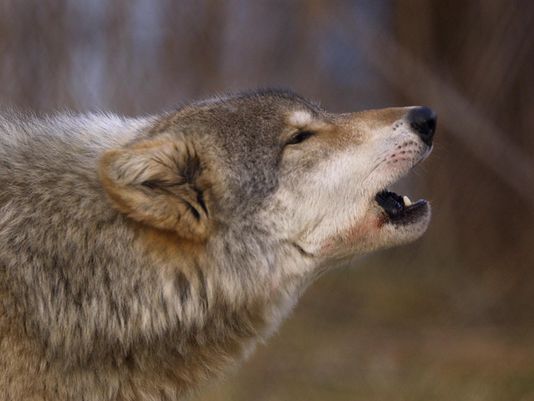
Washington takes steps to reduce wolf conflicts
By Nicholas K. Geranios / The Associated Press
SPOKANE, Wash. — The season when wolves come into conflict with livestock in Eastern Washington has arrived, but the state’s Department of Fish and Wildlife is ready.
The agency has been working for nearly a year to minimize conflicts during the summer grazing season.
Across Eastern Washington, “wildlife conflict” specialists have been working with ranchers to help them protect their livestock, while field biologists capture and fit wolves with radio-collars to improve state monitoring efforts.
“Wolves can certainly pose a risk to livestock, and we’re committed to reducing those risks as much as possible,” agency director Jim Unsworth said. “Over the past year, we’ve helped dozens of ranchers take measures to protect their animals.”
Wolves were hunted to extinction at the beginning of the last century in Washington. But starting in the early years of this century, the animals began returning to the state from Idaho and Canada.
Prior to spring pupping season, a survey conducted by WDFW found a minimum of 68 gray wolves in Washington, up 30 percent from the previous year. The number of confirmed wolf packs also increased to 16 from 12 the year before. All the wolf packs are in Eastern Washington.
Since 2013, Washington Fish and Wildlife has offered cost-sharing arrangements to livestock producers who invest in nonlethal methods such as range riders, guard dogs, fencing, and carcass disposal to reduce wolf attacks.
In the past year, the agency has signed 41 agreements with ranchers, committing more than $300,000 to help them adopt measures to protect livestock.
Among the actions taken by the agency:
• Fish and Wildlife contracted with five range riders that can be deployed to help ranchers monitor their livestock, remove sick and injured animals and haze wolves away from grazing areas.
• Biologists have captured 11 wolves and fitted them with radio collars since January. There are now 14 active collars on wolves distributed among 10 of the state’s 16 known wolf packs.
• The agency employs 11 wildlife-conflict specialists to work with livestock producers in areas with active wolf packs.
Ranchers in Eastern Washington have reported losing an increasing number of livestock to wolves as the wolf population has grown.
In 2012 and 2014, the agency twice had to kill members of wolf packs involved in persistent attacks on livestock. The new measures are intended to eliminate the need to kill them.
Comments
Can already see that the ranchers are geared up for killing all the wolves, it would really be nice if they would help by patroling and maybe buying herd dogs or donkeys to help keep wolves from killing the calves but no all they want is to kill all the wolves
Please stop the sportsmen hunts they are not humane killings.This should be illegal it’s the killing of our animals,any animals just to kill for trophy or torture and sick thrills of watching an animal die a horrid death just for their pleasure, please stop it before this becomes a World without our wild.